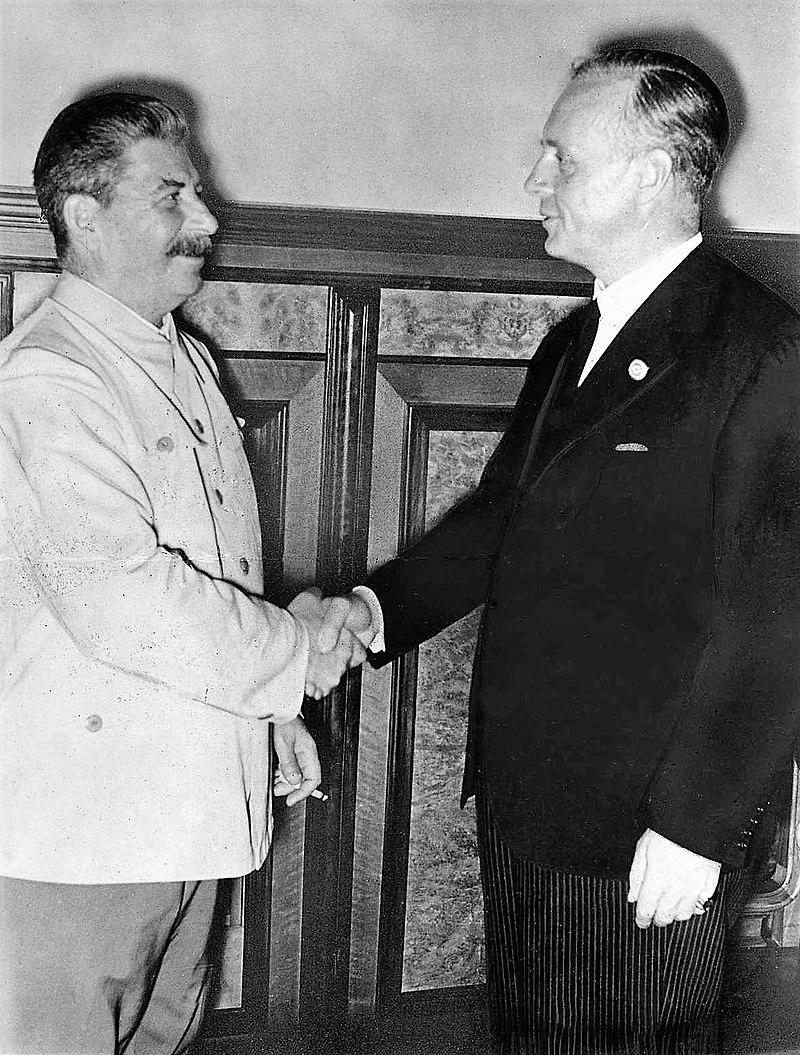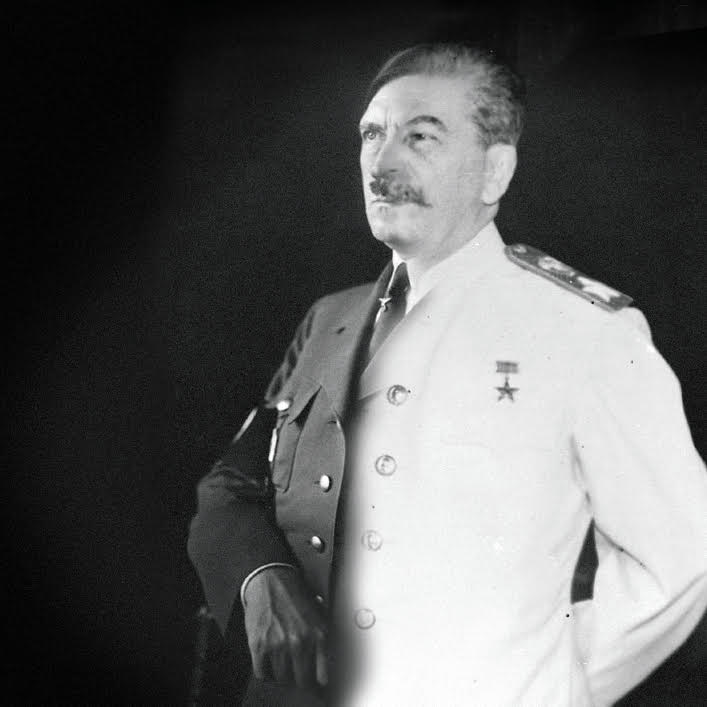The echo of the Hitler-Stalin pact, 81 years later
Historian David Vseviov says the secret agreement between the Soviet Union and Nazi-Germany (also known as the Molotov-Ribbentrop pact) has not lost its relevance in 81 years.
Over the centuries, countless different agreements have been signed between countries. A few of them, analogously to the German-Soviet non-aggression pact of 23 August 1939, have remained at the heart of the ideological struggle. It is mainly because Russia, a descendant of one of the original signers, is unwilling to pursue an honest assessment of past events and their background.

Joachim von Ribbentrop.
As early as 1989, the Second Congress of People's Deputies officially declared the signing of the agreement between the two dictators on 23 August 1939 and its secret protocols to be null and void. The Molotov–Ribbentrop Pact contained a secret protocol by which the Soviet Union and Nazi Germany divided Eastern Europe into spheres of influence. Its signing was hidden from the “victims” and completely disregarded their will.
Even in the context of the era, these documents were “sensitive”, which is evident from the fact that the Soviet Union denied their existence for a long time and claimed that published copies of the secret protocols (first published in 1948) were forged by the enemies. As a response to a publication, Germany–Soviet Union relations, 1918–1941, which was released by the U.S. Department of State, the Soviet Information Bureau (Sovinformburo) published their own book, The Forgers of History („Фальсификаторы истории“ ), which accused English and American capitalists of financing Hitler's war machine without referring to any archival sources.
Furthermore, Vyacheslav Molotov, a signatory of the pact and its secret protocol, denied until his death in 1986 that the treaty had ever been concluded. It should also be noted that neither the USSR Supreme Soviet nor the German Reichstag were informed about the Secret Protocol's existence. As the parliaments had not ratified the documents by law, it was a de jure agreement between Stalin and Hitler, in other words, a plot between dictators.
Over the years, the Soviet historiography has justified the treaty with Germany by arguing that despite the Soviets' efforts to form an anti-fascist coalition, the rulers of Britain and France refused to collaborate against the aggressor, and hoped instead to incite Hitler to attack the Soviet Union.
Vyacheslav Molotov denied until his death (1986) that the treaty had ever been concluded.
Thus, the Soviet Union had no choice but to come to an agreement with Germany and, with foresight, postpone the inevitable start of the war. However, these writings never mention why the agreement had to be signed at the cost of Estonia and other countries.
The Pact signed on 23 August 1939, and its secret protocols, cannot be refuted in serious writings today. The partial opening of archives in 1992 made the Soviet Pact’s original text and its secret protocols available to the public. The entire document was published in the first issue of the academic journal „New and modern history” („Новая и новейшая история“) in 1993.
From that moment on, it was no longer possible to deny the pact's existence, as it is clear that such claims have no basis whatsoever. However, many authors did not want to abandon their earlier viewpoints for ideological reasons. Thus, the denial of secret protocols has in recent decades been replaced by its justification in Russia’s official history. Some have, rather radically, argued that „the Molotov-Ribbentrop Pact is not a matter of apology, but a matter of pride“.

Photo montage: communistcrimes.org.
It has also been stated that the German-Soviet non-aggression treaty remains an object of hatred for Russia's internal and external enemies. As apologising for the past essentially means joining their ranks, Russia has no chance of doing that without losing its dignity.
In 2019, on the 80th anniversary of the signing of the pact, this approach was particularly obvious. On this occasion, the Russian Minister of Culture, Vladimir Medinsky published an article entitled "The Diplomatic Triumph of the USSR” that spoke volumes. At the international conference “USSR’s World War II Prevention Strategy in Europe and Asia”, which was dedicated to the anniversary and represented the official direction, Sergei Ivanov, a member of the Security Council of the Russian Federation, announced: „I consider the Molotov – Ribbentrop Pact an achievement of Soviet diplomacy, of which we should all be proud”. Such a position was prevalent at the conference and in the national media.
We are also dealing with an understanding that justifies the rights of great powers to determine the course of history and the fate of smaller nations.
According to Mikhail Meltjuhov, a Russian historian researching the anti-aggression agreement between Germany and the Soviet Union, the pact should be treated as a great success story for Soviet diplomacy because the Soviet Union was able to take advantage of the crisis in Europe. They outplayed British diplomacy and fulfilled their primary goal of avoiding the war in Europe while achieving significant freedom of action in Eastern Europe. The Soviet Union gained more room for manoeuvring between the warring sides, and at the same time, blamed London and Paris for the breakdown of Anglo-Franco-Soviet negotiations.
Recently, similar views can often be found in Russian politicians’ speeches and historical publications. However, these statements and books do not merely seek to justify the past and Stalinist foreign policy. We are also dealing with an understanding that justifies the rights of great powers to determine the course of history and the fate of smaller nations.
The same idea is also used to justify the Molotov-Ribbentrop Pact and its secret protocols. Therefore, the topic of MRP has not lost its relevance. It is still important simply because politicians who dream of dividing the world do not yet belong in the past. They act here and now, hoping to rule the world through fraud and secret protocols.
David Vseviov (born in 1949) specialises in art and cultural history. He is considered to be one of the most prominent specialists in Russian history in Estonia. Vseviov has been teaching at the Estonian Academy of Arts since 1986. Before receiving the title of the professor emeritus in 2020, he was a longtime history professor at the same university. Vseviov has published numerous books and has been hosting the radio show "Mystical Russia" since 1999. He has received various civil awards and state decorations.